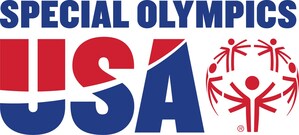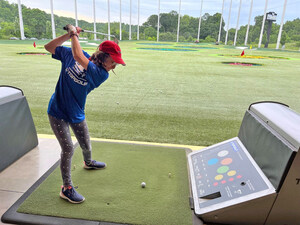Unemployment of People with Intellectual Disabilities More than Twice as High as General Population
Special Olympics Commissions National Study Giving Glimpses into People with ID in the Workplace
WASHINGTON, Feb. 17, 2014 /PRNewswire-USNewswire/ -- A new survey shows that unemployment among people with intellectual disabilities is more than twice as high as for the general population. That's according to one of the most comprehensive national surveys ever done on adults with disabilities in the workforce. The "National Snapshot of Adults with Intellectual Disabilities in the Labor Force" was commissioned by Special Olympics, conducted by the Center for Social Development and Education at the University of Massachusetts Boston and administered by Gallup.[1]
The survey looked at both the labor force participation rate (the percentage of working-age people who are either employed, or unemployed but looking for a job) and the unemployment rate, for 2011 to 2012. During this period, the labor force participation rate for people with intellectual disabilities (ID) was about one-half of the general population's: 44 percent versus 83 percent, indicating that more than half of people with ID have dropped out of or were never in the workforce. The unemployment rate for people with ID was more than twice as high as the general population's at the time of the study: 21 percent versus 9 percent. Further darkening the employment picture is that most people with ID work part-time and many for less than the minimum wage.
"This study paints a bleak picture of the employment situation for adults with intellectual disabilities, revealing a troublingly low employment rate," said Janet Froetscher, CEO of Special Olympics. "We will continue to commit ourselves to identifying the critical factors to improve employment and lives generally for people with ID."
A study analyzing the survey results, titled "National Snapshot of Adults with Intellectual Disabilities in the Labor Force," appears in the January 2014 issue of the Journal of Vocational Rehabilitation.
The Gallup organization telephonically screened 341,000 Americans over two years and identified over 1,000 parents or guardians of adult children with an intellectual disability who agreed to participate in the survey. Key findings include:
- Nationally, 34% of people with intellectual disabilities are employed. (Previous research conducted on behalf of Special Olympics has shown that 52% of adults who participate in Special Olympics are employed.)
- Of employed people with intellectual disabilities, 53% are employed competitively (i.e., work alongside people without disabilities at a market-driven wage); 38% in a sheltered workshop (work centers specifically for people with disabilities), and 9% in other settings (e.g., are self-employed).
- Of those competitively employed, 28% work in customer service; 17% in retail; 16% in food service; 9% in offices; 8% in manufacturing, and 22% in other sectors such as childcare and landscaping.
- Of the adults with ID employed in a competitive setting, over half (62%) have been at their job for three years or more.
- However, only 26% of employed adults with ID have full-time jobs. Only a third were offered health insurance by their employer.
The "National Snapshot of Adults with Intellectual Disabilities in the Labor Force" is the first of three studies to be released in the next six months by Special Olympics focusing on the employment of persons with intellectual disabilities. Although the results of the first study are worrisome, the study breaks new ground with the first- ever nationally-representative data set on the employment situation for adults with ID and lays the foundation for efforts to ensure that this population can find meaningful jobs.
"A meaningful job is important to most of us, and people with intellectual disabilities are no different," said Dr. Gary Siperstein, Director of the Center for Social Development and Education at the University of Massachusetts Boston and the lead researcher of the study. "Government has invested millions of dollars in better outcomes for adults with ID as they transition out of high school and into the labor force. Unfortunately, this study shows that we haven't done enough. But a bright spot is that the survey shows that those who are employed have job stability regardless of where they work and what type of job they have. With this study and the two that will follow, we can better tailor efforts to bring adults with ID into the labor force and provide them good jobs."
About Special Olympics
Special Olympics is an international organization that unleashes the human spirit through the transformative power and joy of sports every day around the world. Through work in sports, health, education and community building, Special Olympics addresses inactivity, injustice, intolerance and social isolation by encouraging and empowering people with intellectual disabilities, which leads to a more welcoming and inclusive society. Founded in 1968 by Eunice Kennedy Shriver, the Special Olympics movement has grown from a few hundred athletes to more than 4.2 million athletes in 170 countries. With the support of more than one million coaches and volunteers, Special Olympics is able to deliver training and competition opportunities in 32 Olympic-type sports and more than 70,000 events throughout the year. Visit Special Olympics at www.specialolympics.org. Engage with us on: Twitter@specialolympics; fb.com/specialolympics; youtube.com/specialolympicshq, and specialolympics.org/blog.
[1] Research Cooperative Agreement to Promote the Health of People with Intellectual Disabilities
Cooperative Agreement/Grant Number: U01 DD000302-05
**Please note that the views represented are those of the authors and not the USCDC.
SOURCE Special Olympics
WANT YOUR COMPANY'S NEWS FEATURED ON PRNEWSWIRE.COM?
Newsrooms &
Influencers
Digital Media
Outlets
Journalists
Opted In




Share this article